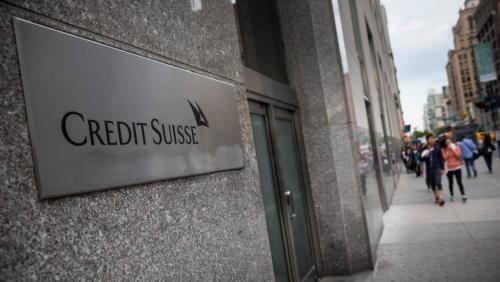Companies trying to keep employees loyal shouldn't then crush them
23 October 2019

Older readers will have seen many established New Zealand businesses taken over by ambitious entrepreneurs shaking the old company to its foundations.
Credit Suisse has followed a similar pathway. It had a halo in Switzerland and was the bastion of the Zurich establishment. But in 2015, the board hired a chief executive to give the place a shake up, one Tidjane Thiam.
He certainly has made an impact. Much of what gave the bank its distinctive character has been dismantled.
Enter Iqbal Khan, a young unashamedly ambitious executive at the bank. He happened to be the next-door neighbour to the chief executive and they had a falling out. The dispute was driven by ambition, ego and insecurity that apparently spilled into their private lives.
It seems that the more powerfully placed chief executive won the struggle because Khan resigned in June of this year.
However, he secured employment with Credit Suisse's arch rival, UBS and that apparently sent a shiver through Credit Suisse. They were fearful that the young rainmaker would take his clients and former colleagues with him.
What did Credit Suisse do? In a plot reminiscent of a James Bond movie, executives of the bank ordered surveillance of Khan.
What the private detectives uncovered was unknown, but the operation fell apart when Khan triggered a confrontation on a quiet manicured street in Zurich. He noticed he was being followed and started photographing and confronting those perpetrating what he no doubt saw as villainy.
All hell broke loose. A board investigation followed and found the saga had severely damaged the bank's reputation. Two very senior executives in the bank have resigned and they have been blamed for the botch-up. Zurich's public prosecutor is still investigating the matter.
The chairman of the board elected to defend the chief executive says he had no knowledge of what happened but was otherwise on top of the bank's affairs.
Much of the public anger in Switzerland, of which there has been plenty, is directed at the new chief executive and what he is perceived to represent.
Doesn't that echo some of the publicity that we get in New Zealand about the direction some of our corporate directors are taking their business in?
When a senior powerful executive leaves a business in New Zealand and heads the competition or sets up on their own, the same fears arise in the corporation they are leaving. Generally once a person gets into a senior position their contract will have restraint of trade clause that endeavours to restrict their ability to work for a competitor, often to prevent them from taking trade secrets or taking other key staff members.
Many major New Zealand businesses have ended up in court defending such clauses.
Air New Zealand, for example, unsuccessfully engaged in a bitter dispute in the Employment Court to enforce Grant Kerr's 6-month restraint of trade clause to prevent him from starting his employment as head of Jetstar New Zealand, despite having already working out 6 months gardening leave.
Air New Zealand were concerned about the strategic knowledge he would be taking and obviously wanted that knowledge to be stale by keeping him out of the workforce for as long as they could.
In a case involving insurance company Aon New Zealand, a senior employee left the company and set up in competition taking a client list and other confidential information with them. Aon took the employee to the Employment Relations Authority and were awarded over $70,000 in damages and penalties.
These are not easy problems. A client who wishes to follow an executive to a new company cannot really be chained to their former service provider.
Clearly the best way to keep clients loyal to a corporation is to provide excellent service and try to retain their loyalty when a key employee departs.
At the end of the day our laws, if properly used, will serve to moderate the bleeding of clients when key players leave a corporation.
While private detectives in New Zealand say they carry out surveillance work which can assist in catching poaching of employees or clients, the Credit Suisse saga demonstrates that this may do more harm than good.
Switzerland has many similarities with New Zealand. Both are small countries. Many people have traditional loyalty to old service providers. A new generation of thrusters is emerging who want to give the old corporation a good shake up and often frustration results in them setting up in competition.
The real tragedy of the Credit Suisse case and others like it is the collateral damage to people generally. Surely respect for others is more important than using power to crush them.


